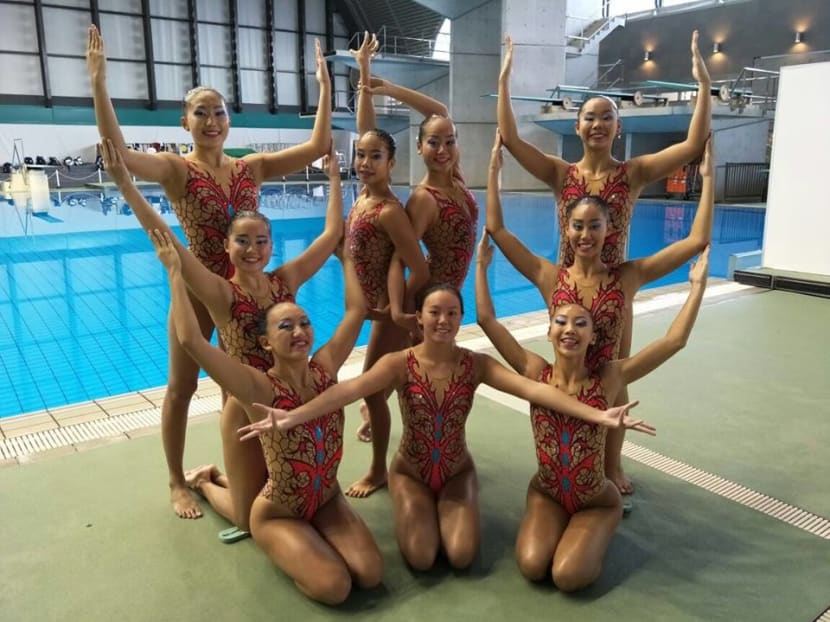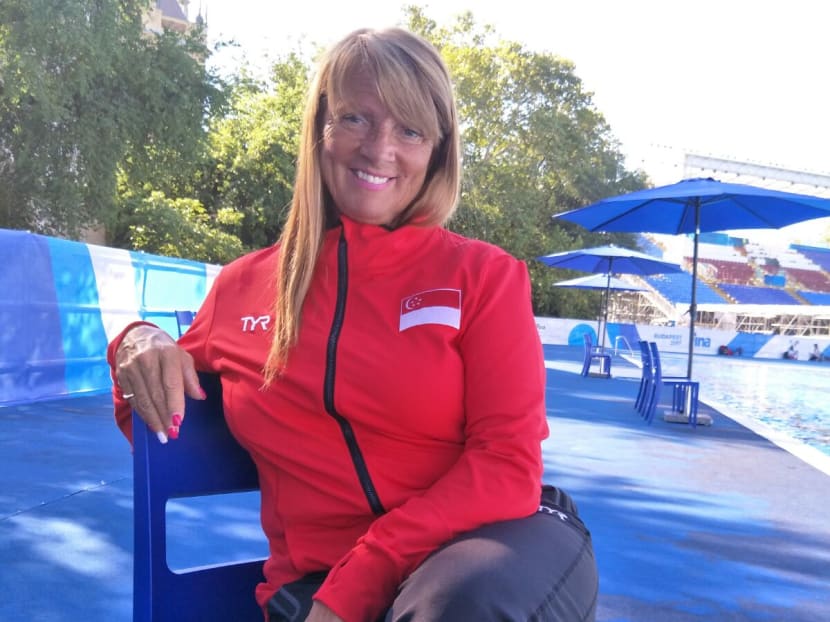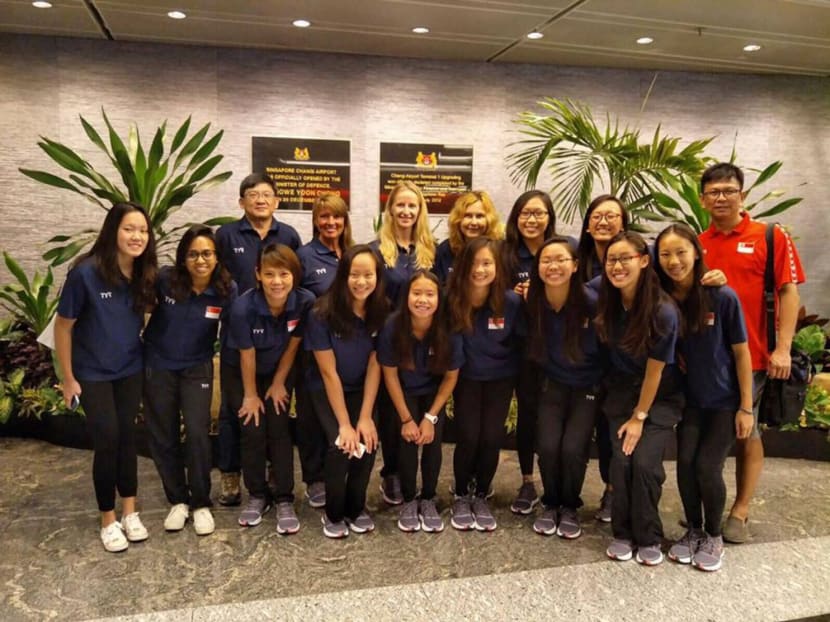Singapore’s synchro swimmers can make Tokyo 2020 Olympics: Sauve
SINGAPORE — Only five Asian nations have ever qualified for the Olympic Games in synchronised swimming — and Singapore is aiming to join that list.



SINGAPORE — Only five Asian nations have ever qualified for the Olympic Games in synchronised swimming — and Singapore is aiming to join that list.
It may appear to be a tall task for the Republic, who have not made even any of the six Asian Games where the sport has featured.
But renowned synchronised swimming coach Julie Sauve believes that qualifying for the 2020 Olympics in Tokyo is not just a pipe dream for Singapore’s duet representatives.
Debbie Soh, 19 and Miya Yong, 17, got together as a pairing only after the 2015 South-east Asian (SEA) Games, but Sauve believes they have the potential to help Singapore become the sixth Asian country after China, Japan, Kazakhstan and the two Koreas to participate at a Summer Games.
“Some countries can say they have no chance, but Singapore has a chance to make it,” the Canadian told TODAY in a recent interview.
“But they have to train hard, undergo systematic training all the time and have two years’ commitment. The qualification is going to be in Japan, six months before the Olympics, so it’s not much time until then.
“They have to repeat the routines, both technical and free, gain muscle mass … it’s not a dream, the possibility is there.”
Sauve’s comments were based on her observations of Singapore’s synchronised swimmers since her appointment as consultant to the Singapore Swimming Association in April last year. The 64-year-old has over 37 years of elite coaching experience and notably coached Canada for 25 years, where she helped Sylvie Frechette win a solo gold medal at the 1992 Barcelona Olympics.
She was brought in to help the Russian duo of national head coach Maryna Tsimashenka and assistant Katsiaryana Kulpo, and has helped to refine the team’s highlights — one of the three components of a typical routine, the other two being leg movements and arm sections.
“Our girls have very good conditioning … (but) our technical knowledge is not enough,” Tsimashenka said. “Synchronised swimming is a very aesthetic sport ... it’s like cooking, she gives all the ‘spices’, to give our routines a different brand and style.
“She has taken girls to a high level in the past and can share with us how to do so.”
Sauve added: “I help with choreography, patterns in the water, moving around the pool — this is where Singapore need to improve the most.
“Also, the fitness, they need to gain more muscle mass — they are 15, but look 12.”
Based in Canada, Sauve keeps in close contact with the two coaches and has flown into Singapore on five occasions to help out with training, while the Singapore team has been to Canada for two training camps.
Sauve has been impressed with the set-up here and believes they are comparable with Canada, one of only three nations to win Olympic golds along with Russia and United States.
“The facilities are there, this is for sure,” she said.
“It’s a young team and improving, because if I compare them to Canada, the girls here at 14, 15 years old, I think … even for that age, are better than Canadian girls.”
The Quebec native did point out the limited talent base here as an area for improvement as well.
“In Canada, there are 12,000 swimmers to choose from,” she said. “Many of them will fight to move to the national teams, they will give their lives.
“The clubs prepare the swimmers to give to the national team and they are proud to do that; here, they should develop that … this is really important.”
Singapore’s improvement has not gone unnoticed, however, and Sauve is confident it is only a matter of time before this young team — average 16.3 years of age — make their mark on the international stage.
“When they went to competitions in Paris and Japan, the judges said ‘this is not the Singapore of old’,” she recalled.
“The only thing is because the name is Singapore, they were given a lower score … they deserve much higher than that.
“Of course it’s frustrating, but I think, with time, it will become better.
“The average age of the top teams in the world is about 24, the Singapore swimmers are pretty young and … if they keep going together, they are going to be competitive and can make the finals in every competition.”





